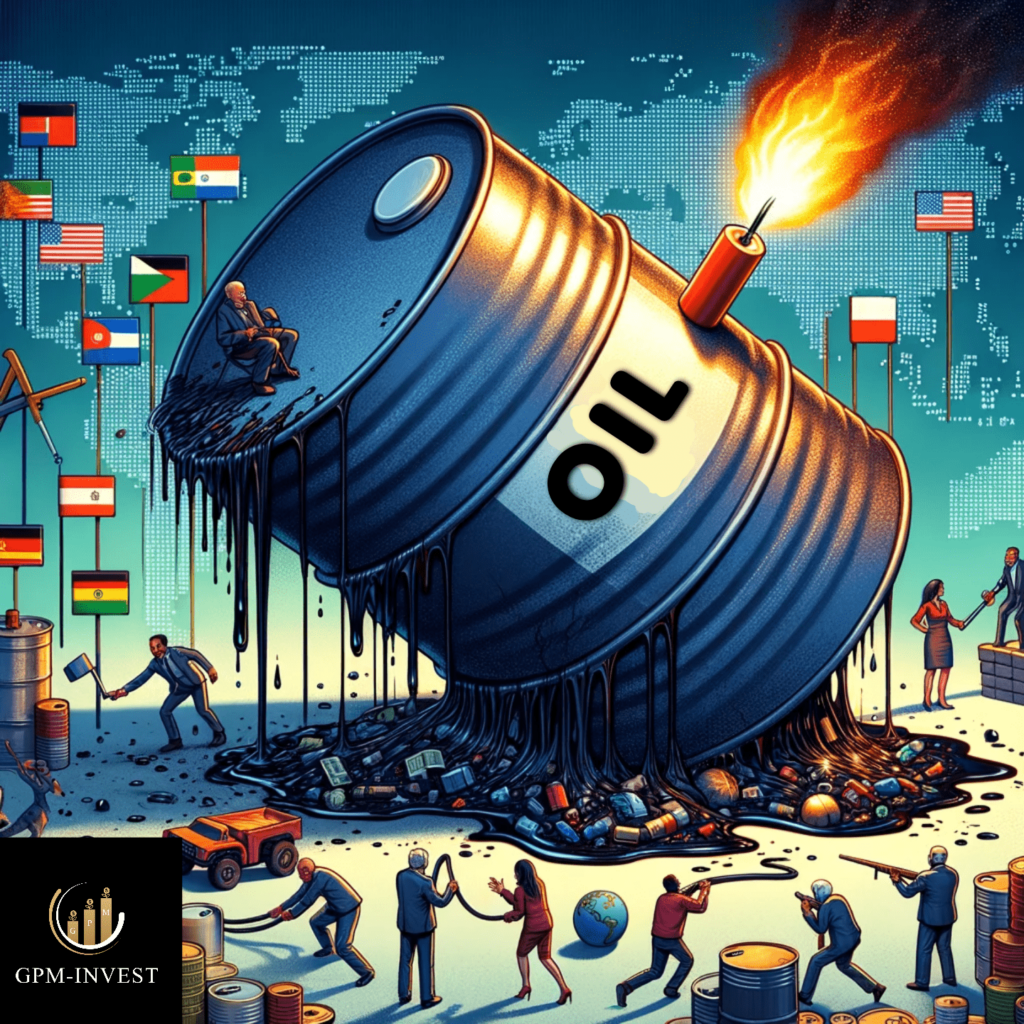Oil at a Breaking Point: The Ticking Time Bomb of Global Stability
By the Digital Zeitgeist, Geopolitical and Financial Analyst based in the UK
In the ever-turbulent waters of geo-political affairs, the escalation of the Israel-Hamas conflict stands poised to send ripples through a precarious global economy. With a dire warning from the World Bank about a potential oil price surge to a staggering $150 a barrel, we now face a critical moment reminiscent of the bygone oil crises of the 1970s. But what does this mean for the world at large?
Echoes of the Past
Let’s wind the clock back fifty years. In 1973, the world faced a seismic oil embargo, resulting in crude prices catapulting fourfold. This unforeseen escalation contributed to a grave economic downturn, marked by crippling inflation and spiralling unemployment, drawing the curtain on the postwar boom that had stabilised the global economy.
Fast forward to today, and the World Bank’s recent evaluation sheds light on eerily similar scenarios that might play out, given the current Israel-Hamas crisis.
Breaking Down the Scenarios
Based on the World Bank’s projections:
- Small Disruption: Echoing the 2011 Libyan Civil War, a potential reduction of 500,000 to 2 million barrels a day could see oil prices nudging between $93 and $102 a barrel.
- Medium Disruption: Mirroring the fallout of the 2003 Iraq War, a 3 to 5 million barrels per day cut could drive prices up 21% to 35%, landing them in the range of $109 to $121 a barrel.
- Large Disruption: Casting us back to the 1973 Yom Kippur War, a significant cut of 6 to 8 million barrels daily might skyrocket prices by a whopping 56% to 75%, pushing them to a breath-taking $140 to $157 a barrel.
The Domino Effect
However, this isn’t solely about the pain at the petrol pumps. As Ayhan Kose, the World Bank’s deputy chief economist, stated, “Higher oil prices, if sustained, inevitably mean higher food prices.” The domino effect of such disruptions is starkly evident, with an expected surge in food prices. The latter half of 2022 already recorded over 700 million people, approximately a tenth of the world’s populace, as undernourished. An escalated conflict threatens to exacerbate this food insecurity globally, not just within the affected regions.
From Russia with Disruption
The recent tensions in the Middle East aren’t the sole contributors to this impending crisis. As Indermit Gill, the World Bank’s chief economist, pointed out, the aftermath of Russia’s conflict with Ukraine is already leaving lasting scars on the global economy, causing significant disruptions in commodity markets. We stand on the precipice of a dual energy shock, the likes of which haven’t been seen for decades.
Global Consequences & Final Thoughts
The intertwining of geopolitics and the global economy has never been clearer. The potential escalation of the Israel-Hamas war poses a grave risk not only to regional stability but to the very fabric of the global economic framework.
With nations across the globe still recovering from economic downturns, disruptions in oil supplies could lead to global recessions, rising inflation rates, heightened unemployment, and exacerbated socio-economic disparities. Beyond economics, the ramifications on food security and the subsequent humanitarian crises cannot be overstated.
In conclusion, while oil remains a dominant player in global economics, its interconnectedness with geopolitics makes it a bellwether for global stability. As the World Bank has astutely highlighted, policymakers worldwide need to be vigilant. In these tumultuous times, proactive strategies and international cooperation are imperative to mitigate the fallout of a potential energy and food crisis.
Disclaimer: The views and opinions expressed in this article are those of the author and do not necessarily reflect the official policy or position of GPM-Invest or any other organisations mentioned. The information provided is based on contemporary sourced digital content and does not constitute financial or investment advice. Readers are encouraged to conduct further research and analysis before making any investment decisions.

